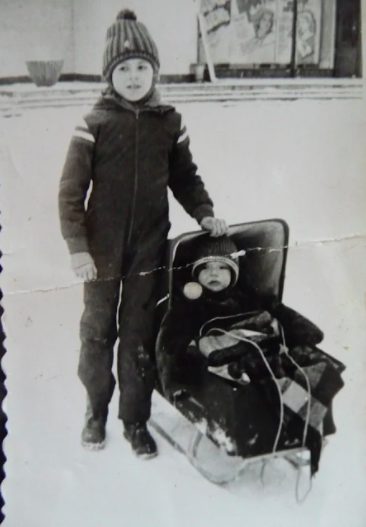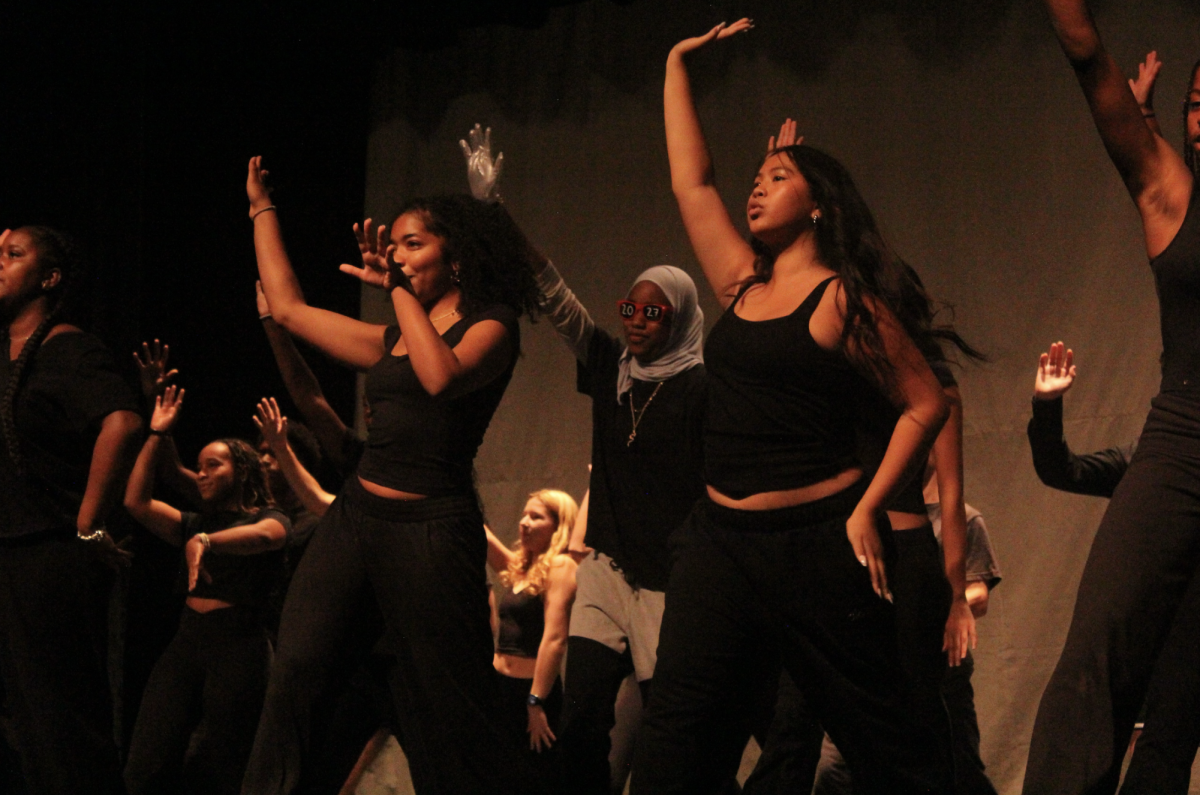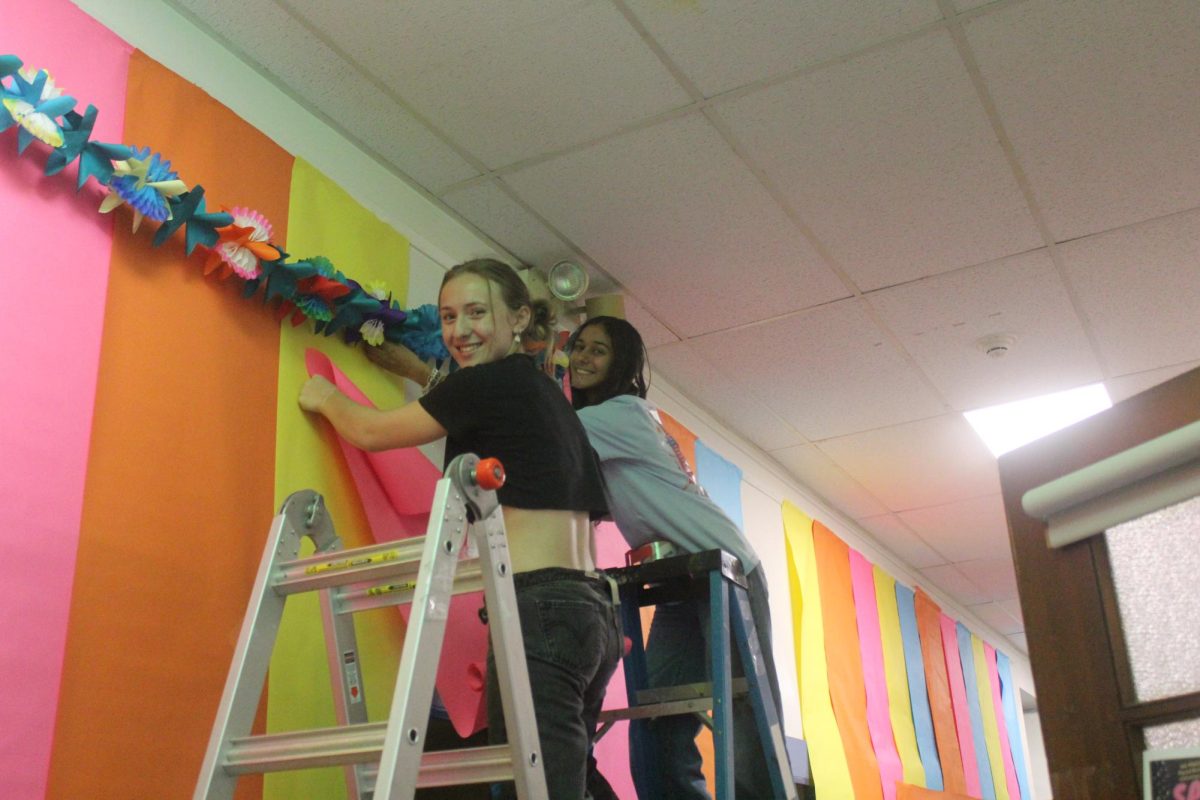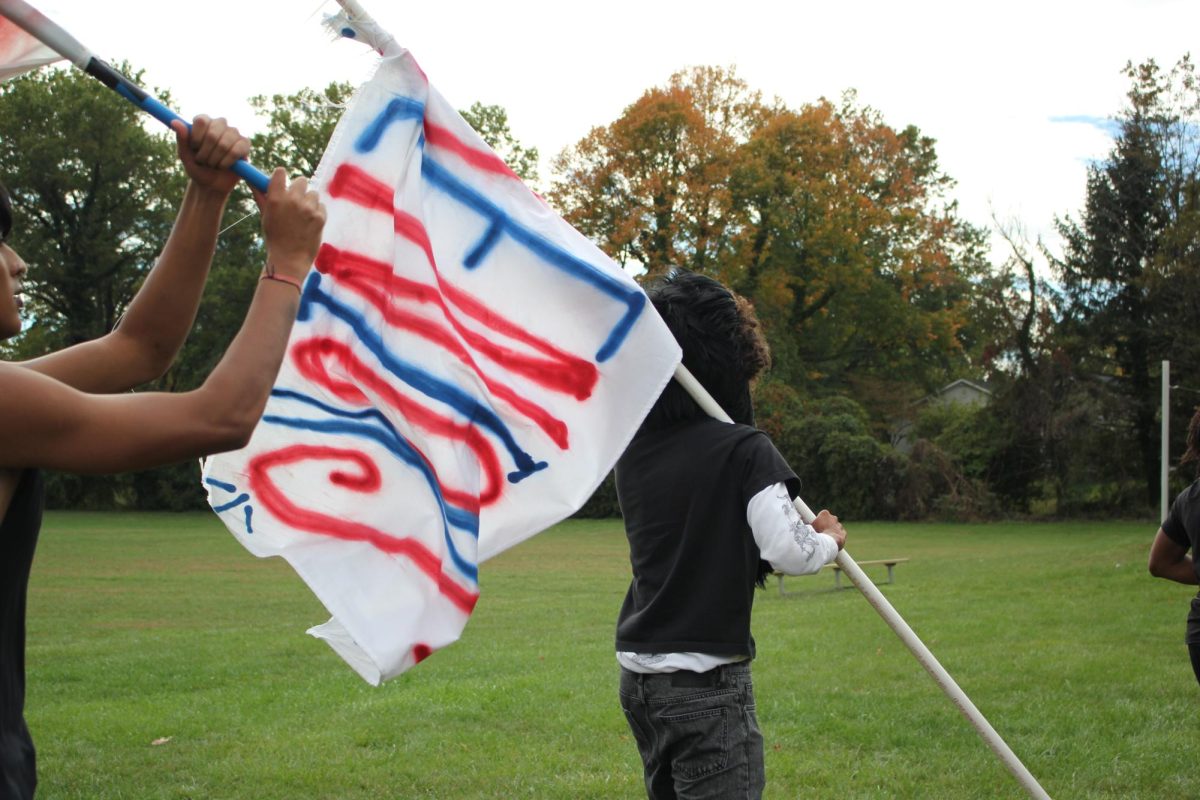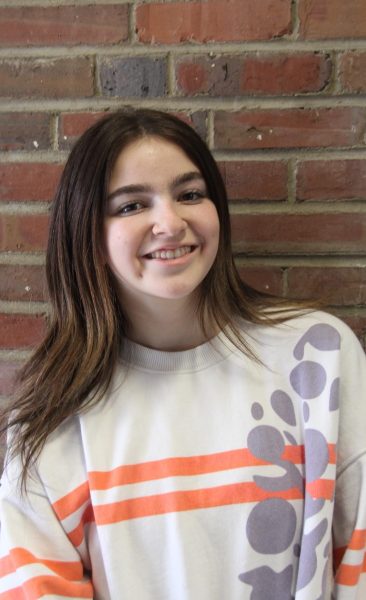
Oleg Dulin spoke at a recent rally near his home in New Jersey.
As the conflicts in Russia and Ukraine continue, I thought of my Uncle Oleg Dulin. Dulin was born in Ukraine, and lived there for most of his childhood. I reached out to speak to him about his personal connection and feelings on the escalating conflict.
WordsWorth: How long did you live in Ukraine before moving to the United States?
Oleg Dulin: I was 15 when we immigrated. I turned 16 that fall. So, we immigrated in the summer of ’94.
WW: Why did you come to the United States?
OD: Historically, there was discrimination against Jews in the Soviet Union, and Ukraine was part of the Soviet Union when we filed for refugee status. My grandfather’s sister was already in America, and she sponsored us. So she helped, in part to unify, bring the family back together. What I remember is my grandparents filed paperwork. My grandfather went to Israel and filed there, at the US Embassy in Israel. Meanwhile his sister filed the paperwork here in the United States. She had to sign [paperwork], that she will support us and help us get settled. I believe we had to wait five years, and then we were invited to come to Moscow to the US Embassy for an interview, where they asked each of us, “Why do you want to come to America? What stories of hardship can you tell?” And then they gave us a visa, and about six months later we packed our stuff and came to America.
WW: Do you know people in Ukraine?
OD: I do, yeah; I have some childhood friends from school. I have not been back to Ukraine in 28 years, but I stayed in touch with them since coming to America. I also have summer camp friends there and some kids I grew up with, my parents’ friends. Over the years I stayed connected through Facebook.
Let’s talk about my best friend from school. He called me last week. He was in Kyiv, the capital of Ukraine. He called me last Tuesday while I was on my Peloton, so I almost missed his call.
He called me, he was freaking out that we might never speak again, we might not have a chance to talk again, and he was worried about his family. He was really scared. He told me to hug my loved ones and to say hello to everyone.
I later found out what happened. He turned out okay; he is in a safe spot right now. But every day, several times a day, Russia would drop bombs on Kyiv, and they had to hide in basements or buildings.
And it’s not like houses; it’s a densely populated city the size of Chicago. So imagine a city like Chicago and people have to run into underground parking lots to hide from bombs. It was getting worse, and there were buildings being destroyed. He took his family to the main train station. There were lots of people while they were at the train station the air raid siren went off. And in all the hustle, they got separated, so he called me and he was worried about his family and he was worried that he was gonna get killed too. And he couldn’t find his family in the crowd. And his family had ended up going on the train, his wife, his daughter and his mother, and they ended up going on the train without him. He was able to get in touch with them the next day, so now they’re together, but he was really scared.
I have another friend who was lost … Her dream was to own a bakery. She opened a bakery in Kyiv last fall, and when the war started she stayed in Kyiv, and she is baking bread for soldiers and for volunteers. But she’s left [Ukraine].
I only have a couple of childhood friends … I know that a friend from summer camp joined the territorial defense, which is basically like a volunteer par-military force … it’s not like an army; it’s more like defending your own neighborhood … but I don’t know the details of that. I know he said he joined, but I don’t know how he’s doing.
Some of my mom’s friends were able to wait until the last moment to evacuate. There’s a city outside of Kyiv called Rikirn, and that one’s been partially occupied by Russian forces., As they walked there were tanks on the street, and there was fighting. They had to hide. They went to the other part of the city so they could get on a bus to evacuate.
I have a coworker … one of my coworkers is in Ukraine too. So she was on the run for the last week and a half. She’s now in Poland with her baby and her husband. It’s pretty scary.
WW: How does it feel to watch Ukraine fight against Russia?
OD: When I was growing up, in the Soviet Union, we were always taught that Russians and Ukrainians are brotherly people. In Ukraine, a lot of people speak Russian … I grew up speaking Russian, not Ukrainian. So there’s a lot of cultural intermingling. People have family in both countries, there are people in Russia who have family, cousins and grandparents in Ukraine, and vice versa. My friend that I told you about who called me, his wife is from Russia.
Up until the war started, I didn’t think it would happen. But the thing that upsets me most is that even though I have not been back in 28 years, I always had the idea that one day I’m gonna go back and see my friends. And when I see images and pictures, videos, of Kyiv being bombed …
It makes me sad that I may never be able to go back there. If I do go there, it might be different. The buildings and the places, they might not be there anymore.
WW: How do you feel like you personally stay connected to that part of your heritage?
OD: It’s a complicated question. I was a child when we came to America. I was a teenager. I don’t really have a strong identity that is connected to Ukraine. But I have memories of childhood, I have old friends, I feel connected to Ukraine in that way. I can read and understand Ukrainian … in the last couple weeks, I’ve been reading a lot of Ukrainian newspapers.
WW: How would you like to see people in the US, and the US as a whole, react?
OD: First of all, there are something like 2 million people in Ukraine who are displaced at this point. And 2 million have crossed the border to Europe. There are organizations like UNICEF and World Central Kitchen. Those organizations are helping the refugees. Those are big international organizations. My employer matches donations, so that’s a good way to help, by donating. There are organizations like local charities and synagogues who are collecting supplies. There are families with little children who are displaced who can’t get things like diapers or medical supplies, Tylenol or baby formula. Churches and synagogues are collecting supplies.
What many people might not realize is that Russia itself is a major oil producer. The war is going to impact gas prices; we’re definitely going to feel it here. The other thing people don’t realize is that Ukraine is producing like 20% of the world’s grain supply, like wheat and corn. Now the war is going on there, and it’s spring time, it’s time for them to plant grains. They can’t do that, so I think there is going to be a food supply shock at some point. Prices for bread could go up, and who knows what else is going to happen? It might not affect us in America, but there are poorer countries where people are going to go hungry because of that.
WW: Being someone who has this connection and these friends in Ukraine, why is it important for people in the United States who might have the mindset that “It’s sad but it doesn’t affect me” to understand what is going on in Ukraine?
OD: I understand why somebody might say, “It doesn’t affect me. It’s not my war.” I personally understand now, which I never thought about before, how other people might feel. How Syrian Americans might feel about a war in Syria. In terms of personal connection, it’s hard for other people to understand that. But why is the war in Ukraine specifically important to Americans?
Russia is a nuclear power. This is the largest conflict in Europe since World War II. We have to pay attention to that because who knows what [Russia is] going to do. Aside from the refugee crisis, and what I said about oil, and food supply, there’s also a potential geo-political crisis that could happen.

